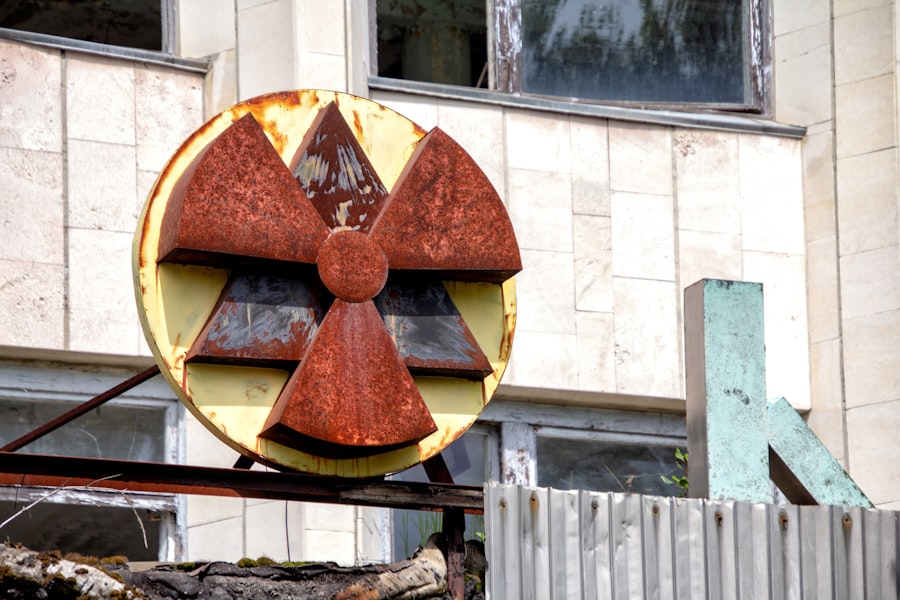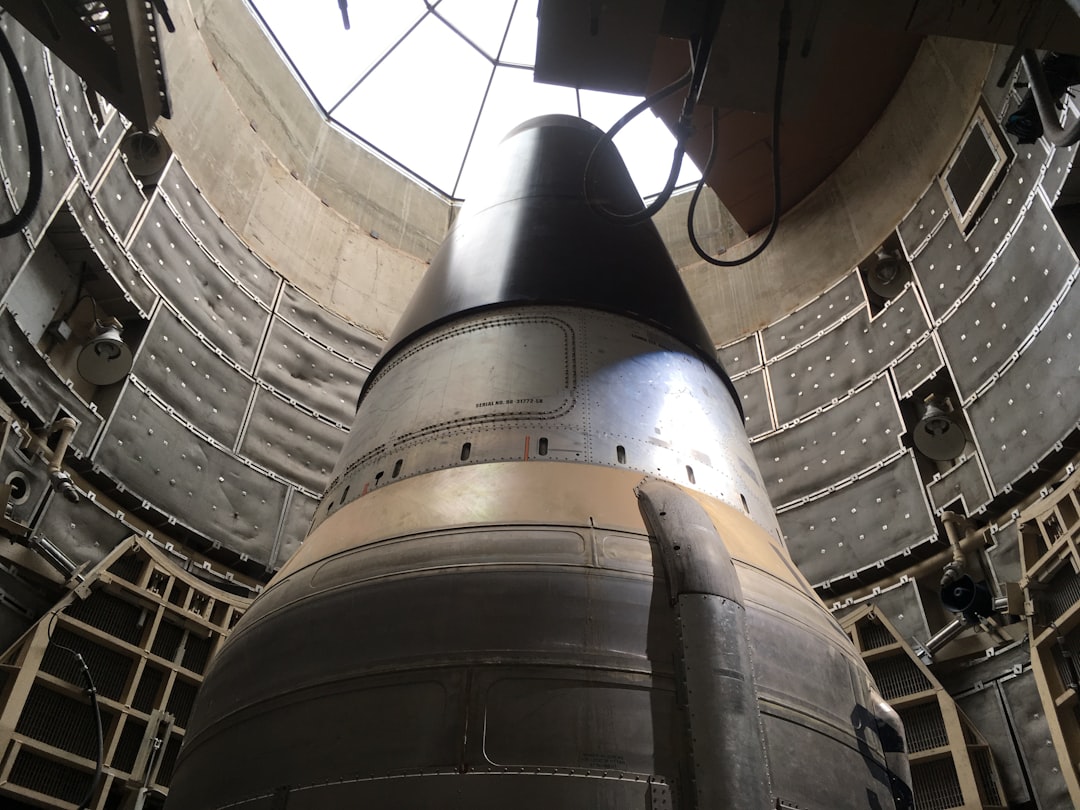In a world increasingly defined by technological advancements and geopolitical tensions, the recent discovery of a nuclear warhead in space has sent shockwaves through the global community. This unprecedented finding raises critical questions about the safety and security of outer space, an area once thought to be free from the threats of warfare. The implications of such a discovery extend far beyond the immediate concerns of national security; they touch upon the very fabric of international relations, ethics, and the future of space exploration.
As humanity stands on the brink of a new era in space, understanding the context and ramifications of this discovery becomes essential. The revelation has ignited a flurry of discussions among scientists, policymakers, and the general public alike. Many are left pondering how a nuclear weapon could have found its way into the cosmos and what this means for future endeavors in space exploration.
The discovery not only highlights the potential for militarization of outer space but also serves as a stark reminder of the ongoing challenges posed by nuclear proliferation. As nations grapple with the implications, it becomes increasingly clear that this event could redefine humanity’s relationship with space and its inherent risks.
Key Takeaways
- The discovery of a nuclear warhead in space has raised concerns about the potential dangers and implications for humanity.
- The history of nuclear weapons in space dates back to the Cold War era, with both the United States and the Soviet Union conducting tests and experiments.
- The warhead was discovered by a team of scientists using advanced technology and satellite monitoring systems.
- The potential implications of the discovery include the threat of space warfare, the militarization of space, and the need for international cooperation and regulation.
- Theories surrounding the origin of the warhead range from accidental loss to intentional placement by a nation state or non-state actor.
The History of Nuclear Weapons in Space
The history of nuclear weapons in space is a complex narrative that intertwines scientific ambition with military strategy. The origins can be traced back to the Cold War era when both the United States and the Soviet Union sought to establish dominance not only on Earth but also in the vast expanse above. During this period, numerous tests were conducted to explore the feasibility of deploying nuclear weapons in space, leading to significant advancements in missile technology and satellite systems.
The 1967 Outer Space Treaty, which aimed to prevent the militarization of space, emerged as a response to these escalating tensions, yet it did not entirely eliminate the potential for nuclear weapons to be developed or deployed beyond Earth’s atmosphere. As time progressed, various nations continued to explore the possibilities of utilizing space for military purposes. The concept of space-based missile defense systems gained traction, with countries investing heavily in research and development.
Despite international treaties aimed at curbing such activities, the allure of having a strategic advantage in space remained strong. This historical backdrop sets the stage for understanding the recent discovery, as it underscores a long-standing tension between scientific exploration and military ambition.
How the Warhead was Discovered

The discovery of the nuclear warhead was not an isolated incident but rather a culmination of years of monitoring and research by various space agencies and independent organizations. It began with routine surveillance operations aimed at tracking debris in Earth’s orbit. As satellites scanned the vastness of space, they detected an unusual object that warranted further investigation.
Initial assessments suggested that this object was not merely space debris but something far more concerning—a nuclear warhead.
The findings confirmed suspicions: what lay before them was indeed a nuclear warhead, likely abandoned or lost during earlier military operations.
The implications of this discovery were profound, as it raised questions about how many other such weapons might be lurking in the shadows of space, undetected and potentially dangerous.
The Potential Implications of the Discovery
| Implication | Details |
|---|---|
| Scientific Advancements | The discovery could lead to new scientific breakthroughs and advancements in various fields. |
| Technological Innovations | New technologies may be developed based on the discovery, impacting various industries. |
| Environmental Impact | The discovery could have implications for the environment and ecosystems. |
| Economic Opportunities | New opportunities for economic growth and development may arise from the discovery. |
The implications of discovering a nuclear warhead in space are vast and multifaceted. First and foremost, it raises urgent concerns about global security. The presence of such a weapon poses a direct threat not only to nations but also to civilian satellites and space missions.
The potential for accidental detonation or collision with other objects in orbit could have catastrophic consequences, leading to widespread destruction both in space and on Earth. Moreover, this discovery could trigger a new arms race in space as nations scramble to secure their interests and protect their assets. The fear of losing strategic advantages may lead to increased military spending on space-based technologies, further complicating international relations.
As countries react to this revelation, there is a risk that diplomatic efforts aimed at disarmament could be undermined, pushing humanity closer to a precarious situation where conflict extends beyond terrestrial boundaries.
Theories Surrounding the Origin of the Warhead
As experts delve into the origins of the discovered warhead, several theories have emerged regarding how it came to be in space. One prevailing theory suggests that it may have been part of a failed military operation during the Cold War when both superpowers conducted numerous tests involving nuclear weapons in various environments. The chaotic nature of these tests could have resulted in some weapons being inadvertently launched into orbit or lost during re-entry attempts.
Another theory posits that the warhead could have been deliberately placed in orbit as part of a clandestine military strategy. Some analysts speculate that certain nations may have sought to establish a deterrent presence in space, believing that having a nuclear weapon in orbit would provide them with an upper hand in geopolitical negotiations. Regardless of its origin, the presence of this warhead raises critical questions about accountability and transparency in international military operations.
International Reactions to the Discovery

The international community’s reaction to the discovery has been swift and varied. Nations around the world have expressed alarm over the implications for global security and stability. Emergency meetings among key stakeholders have been convened to discuss potential responses and strategies for addressing this unprecedented situation.
Some countries have called for immediate action to secure the warhead and prevent any potential threats it may pose. In contrast, other nations have taken a more cautious approach, advocating for dialogue and diplomacy rather than escalating tensions further. They emphasize the importance of adhering to existing treaties and frameworks aimed at preventing militarization in space.
This divergence in responses highlights the complexities of international relations and underscores how deeply intertwined national security concerns are with broader geopolitical dynamics.
The Future of Space Exploration and Security
The discovery of a nuclear warhead in space has significant implications for the future of space exploration and security. As nations grapple with this new reality, there is an urgent need for comprehensive policies that address both scientific advancement and military considerations. The potential for militarization of outer space looms large, threatening to overshadow collaborative efforts aimed at exploring new frontiers.
To ensure that space remains a domain for peaceful exploration rather than conflict, international cooperation will be essential. Countries must work together to establish clear guidelines governing military activities in space while promoting transparency and accountability. This collaborative approach could pave the way for innovative solutions that prioritize safety while allowing for continued exploration and scientific discovery.
The Role of Space Agencies in Monitoring Space Weapons
Space agencies play a crucial role in monitoring potential threats posed by weapons in orbit. Organizations such as NASA, ESA (European Space Agency), and others are tasked with tracking objects in space, including debris and any potential military assets. Their expertise is vital for understanding the dynamics of objects orbiting Earth and assessing risks associated with them.
In light of recent discoveries, these agencies may need to expand their capabilities to include more robust surveillance systems specifically designed to detect and monitor nuclear weapons or other military assets in space. Enhanced collaboration between national and international agencies will be essential for creating a comprehensive framework that ensures safety while fostering scientific progress.
The Potential Dangers of Nuclear Weapons in Space
The dangers posed by nuclear weapons in space are manifold and cannot be overstated. Beyond the immediate threat of detonation or collision with other spacecraft, there are long-term environmental consequences to consider. A nuclear explosion in orbit could generate vast amounts of debris, creating hazardous conditions for satellites and other missions operating within that region.
Additionally, there are concerns about radiation exposure resulting from nuclear detonations or accidents involving these weapons. Such exposure could have detrimental effects on both human health and technological infrastructure on Earth. As humanity continues to push boundaries in space exploration, understanding these dangers becomes paramount for ensuring that future endeavors do not come at an unacceptable cost.
The Legal and Ethical Considerations of the Discovery
The discovery of a nuclear warhead in space raises profound legal and ethical questions that must be addressed by the global community. Existing treaties such as the Outer Space Treaty provide a framework for preventing militarization but may require reevaluation in light of new developments. Questions surrounding accountability for past actions also arise—who is responsible for ensuring that such weapons do not pose a threat to humanity?
Ethically, there is an obligation for nations to prioritize peace and cooperation over competition when it comes to outer space activities. The potential for conflict should not overshadow humanity’s shared responsibility to explore and utilize space sustainably. As discussions unfold regarding legal frameworks governing military activities in space, it is crucial that ethical considerations guide decision-making processes.
What This Discovery Means for Humanity
The discovery of a nuclear warhead in space serves as a wake-up call for humanity—a stark reminder that even as we reach for the stars, we must remain vigilant about the threats posed by our own creations. This event has far-reaching implications that extend beyond national security; it challenges humanity’s collective conscience regarding our responsibilities as stewards of both Earth and outer space. As nations navigate this complex landscape, there is an opportunity for collaboration that transcends borders—a chance to redefine our relationship with technology and explore new frontiers responsibly.
Ultimately, how humanity responds to this discovery will shape not only the future of space exploration but also our ability to coexist peacefully on this planet we call home.
An interesting perspective on this topic can be found in an article on HeyDidYouKnowThis, which delves into the historical context and future possibilities of lunar militarization. For a deeper understanding of these issues, you can read more about it on their sample page. This article provides a comprehensive overview of the strategic considerations and international treaties that govern the use of nuclear technology in outer space.
WATCH THIS! 🤯America Tried to Nuke the Moon
FAQs
What is a nuclear warhead?
A nuclear warhead is a type of explosive device that derives its destructive force from nuclear reactions, either fission (fission warhead) or a combination of fission and fusion (thermonuclear warhead).
Can a nuclear warhead be placed on the Moon?
In theory, it is possible to place a nuclear warhead on the Moon. However, there are international treaties and agreements, such as the Outer Space Treaty, that prohibit the placement of weapons of mass destruction in outer space.
What are the potential consequences of placing a nuclear warhead on the Moon?
Placing a nuclear warhead on the Moon could have significant political, environmental, and ethical implications. It could potentially lead to an escalation of tensions between nations and raise concerns about the militarization of outer space. Additionally, the environmental impact of a nuclear explosion on the Moon could have unknown effects on the lunar surface and potentially affect Earth.
Has a nuclear warhead ever been placed on the Moon?
To date, there is no evidence or record of a nuclear warhead being placed on the Moon. The Outer Space Treaty, which was signed in 1967, prohibits the placement of nuclear weapons and other weapons of mass destruction in outer space.
What is the current international stance on placing nuclear warheads on the Moon?
The international community, through treaties and agreements such as the Outer Space Treaty, is committed to preventing the placement of nuclear weapons on celestial bodies, including the Moon. This stance is aimed at maintaining outer space as a peaceful and cooperative environment for exploration and scientific research.
